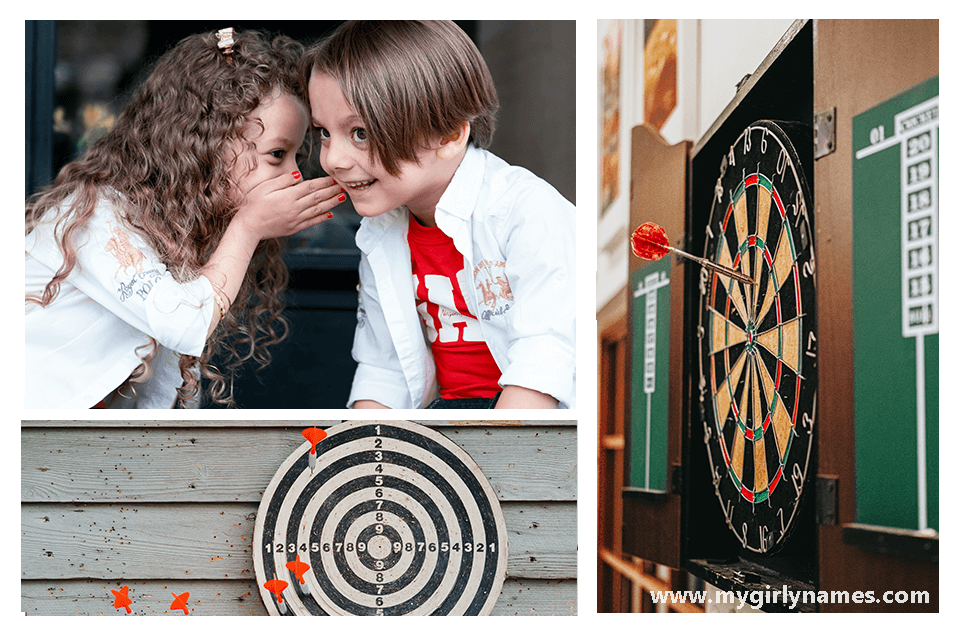Influential communication is key to building strong relationships with our children. As parents, we often find ourselves struggling to communicate with our kids in a way that fosters understanding and cooperation. Fortunately, there are proven techniques that can help us talk so kids will listen.
In My Girly Names, we will explore essential communication strategies that can make a significant difference in how we interact with our children and ultimately strengthen the parent-child bond.
1. Active Listening
One of the fundamental aspects of effective communication with children is active listening. When we actively listen to our kids, we show them that their thoughts and feelings are valued. Active listening involves giving our full attention to our child, maintaining eye contact, and being present at the moment.
Children often express themselves through play, drawing, or other non-verbal means. As parents, it’s essential to pay attention to these cues and respond empathetically. When our children feel heard and understood, they are more likely to open up and share their thoughts and emotions with us.
2. Use Positive Language
The words we choose when communicating with our kids have a powerful impact on their self-esteem and overall behavior. Using positive language can help create a supportive and nurturing environment. Instead of using negative or critical words, we can rephrase our statements in a more positive manner.
For example, instead of saying, “Don’t leave your toys all over the floor,” we can say, “Let’s tidy up our toys together to keep the room neat and safe.” Positive language promotes cooperation and encourages our children to see tasks as opportunities rather than burdens.
3. Set Realistic Expectations
As parents, we want the best for our children, and sometimes we may unknowingly set expectations that are beyond their capabilities. It’s important to consider our child’s age, developmental stage, and individual strengths when setting expectations.
Setting realistic expectations means recognizing that each child is unique and will progress at their own pace. Celebrate their achievements, no matter how small, and encourage them to keep trying even if they face challenges. This positive reinforcement will boost their confidence and motivate them to continue growing.
4. Validate Their Feelings
Children experience a wide range of emotions as they navigate the world around them. It’s crucial to validate their feelings, even if we may not fully understand or agree with them. When a child expresses their emotions, we can respond by acknowledging their feelings without judgment.
For instance, if our child is upset because a friend canceled a playdate, we can say, “I can see that you feel disappointed about the playdate being canceled. It’s normal to feel that way when plans change.” Validating their emotions helps them feel accepted and supported, fostering trust and open communication.
5. Use Descriptive Praise
Praising our children is essential for reinforcing positive behavior and encouraging their efforts. However, generic praise may not be as effective as specific and descriptive praise. Descriptive praise involves acknowledging the specific actions or efforts our child has made.
Instead of saying, “Good job,” when they complete a task, we can say, “You did an excellent job of putting away your toys and organizing them by color. I’m proud of how responsible and organized you are.” Descriptive praise provides meaningful feedback, helping our children understand what behaviors are valued and appreciated.
6. Problem-Solving Together
When conflicts or challenges arise, involving our children in the problem-solving process can empower them to take ownership of the situation and find solutions. By including them in the decision-making process, we show them that their opinions and ideas are valued.
Encourage your child to share their thoughts about how to handle a specific situation, such as resolving a disagreement with a sibling or deciding on a family activity. Be patient and supportive throughout the process, even if their proposed solutions are not feasible. The experience of problem-solving together fosters critical thinking skills and strengthens the parent-child relationship.
7. Lead by Example
Children learn by observing their parents and caregivers. As role models, our behavior significantly influences how our children communicate and interact with others. Demonstrating active listening, respectful communication, and empathy sets a positive example for our children to follow.
When talking to our children or others, let’s make a conscious effort to be attentive, patient, and respectful. Our actions speak louder than words, and leading by example instills essential values and communication skills in our children.
8. Avoid Criticism and Judgment
Criticism and judgment can be harmful to a child’s self-esteem and communication with parents. Instead of focusing on their shortcomings, provide constructive feedback and encouragement.
For example, instead of saying, “You always forget to put your dishes in the sink,” we can say, “Remembering to put your dishes in the sink is essential for keeping the kitchen tidy. Let’s work together to make it a habit.” Encouraging open communication and constructive feedback create a safe and trusting environment for our children to express themselves freely.
9. Be Patient and Understanding
Effective communication takes time, especially when it comes to building a healthy parent-child relationship. Be patient and understanding, allowing your child to express themselves at their own pace.
It’s essential to create a supportive environment where our children feel comfortable sharing their thoughts and feelings without fear of judgment. Be present and attentive when they talk to you, and avoid interrupting or rushing the conversation. Sometimes, it may take time for children to process their emotions and thoughts fully, so be patient and give them the space they need to express themselves.
Conclusion
Effective communication with our kids is an ongoing process that requires patience, understanding, and empathy. By actively listening, using positive language, setting realistic expectations, validating their feelings, offering descriptive praise, problem-solving together, leading by example, avoiding criticism, and being patient, we can foster a strong and positive parent-child bond.
Remember that every child is unique, and finding the right approach may take time, but the effort is undoubtedly worth it. Practice these communication strategies consistently, and you’ll likely notice improvements in how you talk so kids will listen. As parents, we have the power to nurture strong and meaningful connections with our children through effective communication, laying the foundation for a lifetime of healthy relationships and open dialogue.
Related Links :
Cute Baby Girl Names
Name combiner
How to Save Money on Baby Clothes?
The Best Side Gigs For Cash-Strapped Single Parents
List of Baby names that means Rainbow





